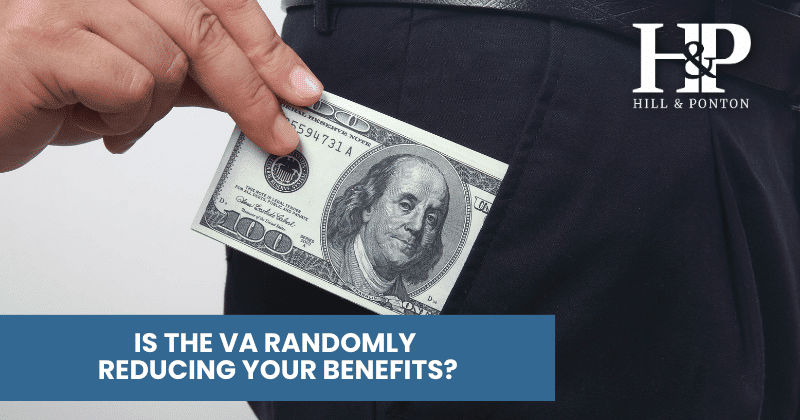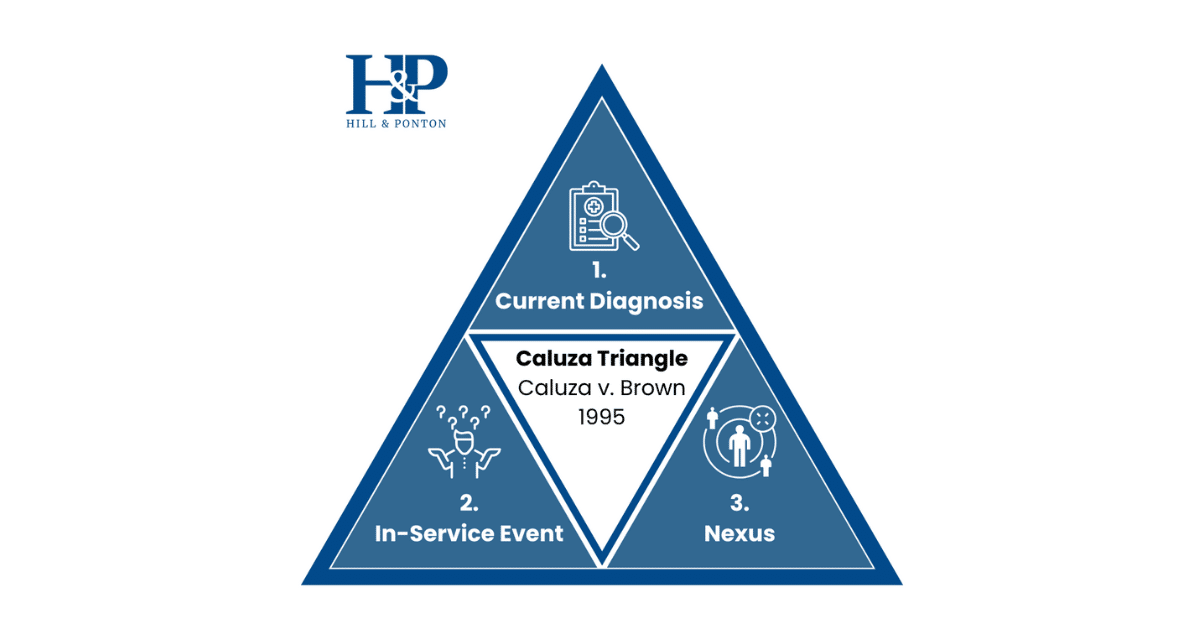You’ve gone through the long and arduous process of applying for VA disability benefits and won your claim.
Congratulations! It’s a great feeling when you’re won the fight for the benefits that you rightfully deserve.
Many veterans mistakenly think once they start receiving their disability compensation checks and other benefits that the fight is over–but make no mistake, it isn’t.
And you need to constantly stay vigilant because of that fact.
The VA can and may very well reduce your disability compensation ratings. While it’s not so much a random occurrence, it does happen–and quite often!
So, it’s important to know what can cause the VA to do this, and the steps you can take to fight it, if they do.
Please remember a few things before we dive in:
- This is not a comprehensive list of every possible way you may get benefits reduced because of the VA. These are the most common.
- When the VA proposes to reduce your compensation, it is important to act immediately.
Why Your Benefits May Be Reduced
Here are the rules on when the VA may potentially reduce a veterans disability benefits.
Jail
The VA can reduce compensation when a veteran is in any local, state or federal jail or prison for more than 60 days.
On day 61, the VA can reduce benefits. If the veteran was receiving benefits of 20% or more, the VA can reduce the benefit to 10%.
Unprotected Ratings
An “unprotected rating” is when the benefits paid are not total (meaning they are under 100 percent) or not stabilized (in effect for less than five years).
The VA can reduce an unprotected rating, if there is an improvement in the veteran’s disability, after considering a variety of factors like the veterans’ medical and work history, and day-to-day life.
Stabilized Ratings
A VA “stabilized rating” occurs when the veteran’s disability, and the rating that the VA assigns to it, have continued for five or more years at the same level.
A stabilized rating cannot be reduced unless the VA shows a sustained improvement in a veterans disability. This means the veteran’s entire medical and employment record has been reviewed.
100% Ratings
The VA can reduce a 100 percent total disability status, only if there is a “material improvement” in the veteran’s condition.
This means that the VA must compare the exam that led to the 100 percent rating to the pre-reduction examination, consider the entire medical history of the disease or injury, and see whether there has been a change to the veteran’s day-to-day functioning.
All of these criteria must be met in order to be considered a “material improvement.”
The VA frequently makes the mistake of reducing 100 or total rating because of claiming after re-examinations, that the veteran’s symptoms are consistent with a lower impairment level. This is an error under current law.
Continuous Rating
A continuous rating means that a veteran has received benefits at or above a certain percentage for 20 years or more. If this is the case, the VA can’t reduce the rating unless it was fraudulent.
Protected VA Disability Ratings
- VA Disability 5 Year Rule: If the rating has been in effect for five years, it cannot be reduced unless you’ve improved and sustained improvement, and there must be supporting documentation showing this.
- VA Disability 10 Year Rule: A service-connected disability rating cannot be terminated if it has been in effect for 10 years. Compensation can be reduced if evidence exists that the condition has improved. The only exception is if the rating is proved fraudulent.
- VA Disability 20 Year Rule: If the rating has been in effect for twenty years, it cannot be reduced below the lowest rating a veteran has had in 20 years, unless proven fraudulent.
- VA Disability 100% Rule: The VA must prove your medical situation has “materially improved” as mentioned above, and that you can perform gainful employment.
- TDIU Rated: If you collect total disability based on individual unemployability (TDIU) benefits, you are protected from a reduction.
What Does the VA Have to Do to Notify Me of Rating Reduction?
The VA must send you what is known as a reexamination letter before they can change your service-connected disability rating.
The letter will detail when the exam will take place and what. It will also state how to reschedule your appointment if needed.
It is essential you attend your appointment–if you don’t, or don’t submit evidence, your benefits could very well be reduced or even terminated, without additional notice.
You have 30 days to request a hearing if you wish to contest the VA decision, and 60 days to submit evidence that a reduction is not warranted.
The VA cannot reduce your service-connected disability rating without first sending you notice. Failure to do so should result in full-reinstatement of your benefits.
When Will the VA NOT Schedule a Re-Examination?
The VA will typically not schedule you for a re-examination if you meet any of the following:
- You are over the age of 55
- The disability is static (i.e. the loss of a limb)
- The disability is considered permanent and isn’t going to improve
- The disability is already at a minimum rating for that disability
- Reducing an individual rating would not affect the total combined disability rating
A Re-Examination Could Also Result in an Increased Disability Rating
A notice of re-examination may, in certain circumstances, result in a higher disability rating. The VA won’t do this deliberately, but if it is proven during your examination, you could get an increase in your rating.
The thing to remember is–a VA disability rating is not static in all cases, and may change throughout the course of your life. It all depends on the circumstances, which is why it’s important to know how to protect yourself and the benefits you deserve!
What Do I Do if the VA Reduced My Benefits?
If you receive a notice that your disability compensation benefits have been decreased, make sure to understand the notice completely first and foremost.
Then, once you understand, if you still disagree with the decision, file a Notice of Disagreement to start the formal appeals process. You have one year from the date the VA mails your reduction letter to file your notice of disagreement.
You’ll use the Notice of Disagreement to state what exactly you disagree with and indicate how you’d like to proceed with the appeals process. You can request to submit additional evidence, a higher-level review with existing evidence, or a hearing from a Veterans Law Judge (VLJ).
The VA appeals process can take up to a year. If you win your appeal, you’ll receive back-pay of your benefits to offset the reduction. If you do not, you can start over again and select a different review process on the Notice of Disagreement, or contact a lawyer specializing in VA disability claims, like those at Hill & Ponton, PA.
Have Questions About the Claims Process or Appealing a Decision?
The attorneys at Hill & Ponton are here to support you in your claim. If you are intending to appeal a denied claim, you can contact us for an evaluation.




